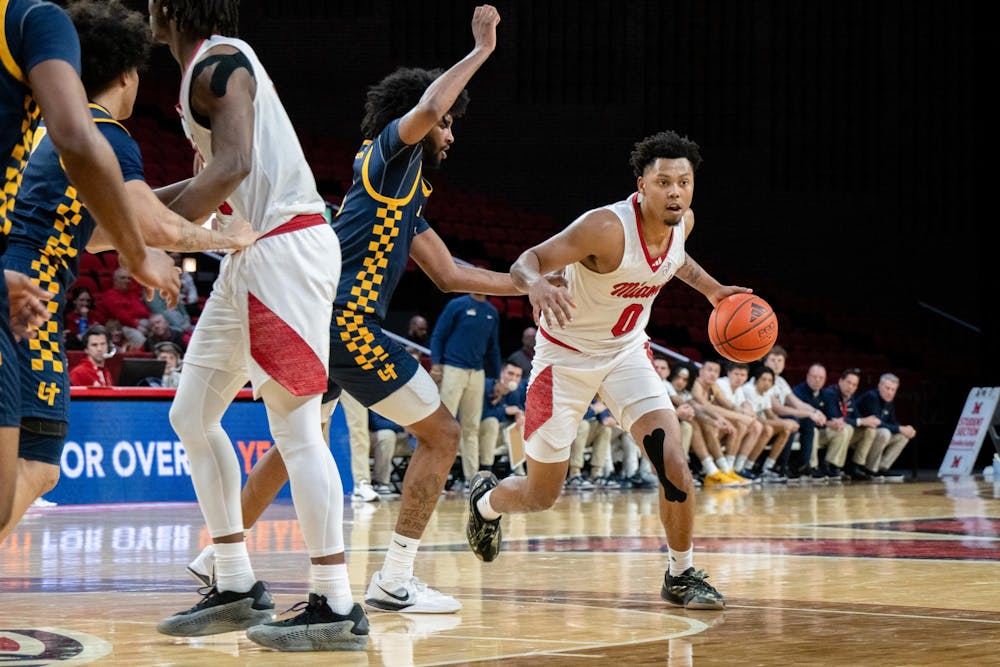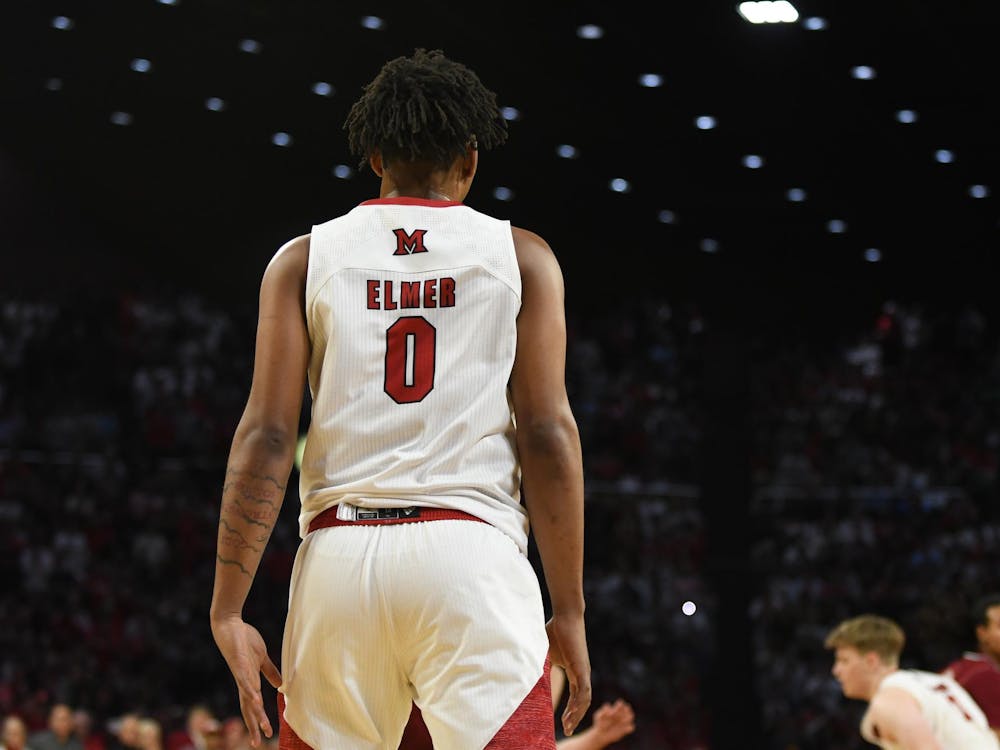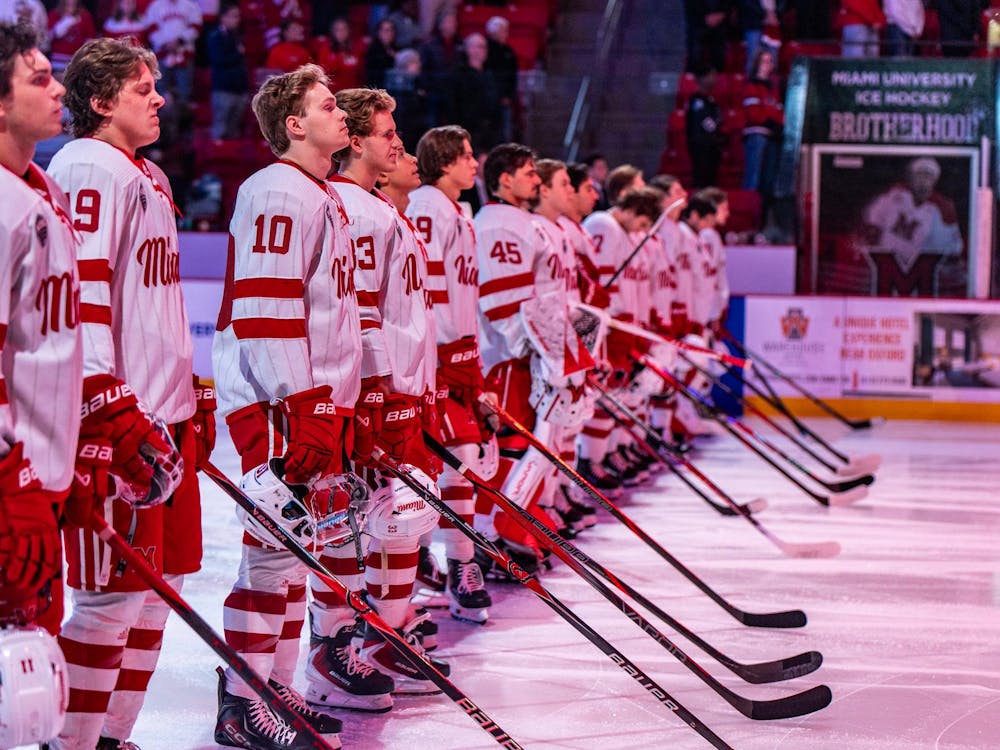As fans, we wait months for our favorite sports and leagues to come back from their offseason hiatus, coining terms like ‘Hot Stove’ for the long winter without baseball.
As a result of boredom and borderline obsession, fans and pundits have curated preseason rankings and polls based on what they think will happen in the upcoming season. It is a fun exercise, with some basing theirs on previous performances and others simply guessing. .
I participate in preseason rankings often, sometimes predicting playoff results for college football in July.
These predictions aren’t meant to be taken seriously. No one knows how Dequan Finn will actually perform under Chuck Martin’s system in June – it needs to be showcased on the field. Last men’s basketball season, Miami was picked sixth in the Mid-American Conference standings. The RedHawks finished 14-4 in conference play and second in the league.
Who could have predicted the jumps that the likes of Peter Suder and Antwone Woolfolk would take before last November?
At the national level, the preseason Associated Press football rankings had the University of Texas Longhorns and the Penn State University Nittany Lions ranked first and second, respectively. Now, both teams are unranked.
The Baltimore Ravens were a preseason Super Bowl favorite this year, but they currently sit at 1-5 with quarterback Lamar Jackson still out due to injury. Anything can happen in a season, and sports are nearly impossible to predict.
The problem with preseason polls, especially at the collegiate level, is the bias that can infiltrate postseason participation.
The University of Alabama Crimson Tide finished the 2024 college football season 9-3, and analysts were debating whether they should be included in the playoffs. This was not due to the results Alabama produced on the field: it was more due to the preconceived notion that the Crimson Tide was one of the best teams in the sport.
The main argument in their favor was the strength of schedule. But were their wins impressive because the teams they beat were actually good, or was it more because we all thought the teams they beat were elite?
This isn’t an anti-SEC tirade, but the conference showcases one of the more pressing examples of preseason bias. In both the 2023 and 2024 high school recruiting class rankings, there were six SEC teams in the top 10 classes.
Talent gained through recruiting does not always amount to success. The Indiana University Hoosiers do not have a single five-star recruit on their roster, yet they are 7-0 and ranked second in the country.
Enjoy what you're reading?
Signup for our newsletter
In the new age of college sports, with the transfer portal and NIL playing such a huge role, it is becoming increasingly difficult to predict where teams will fall when the dust settles. Who would have thought the University of Mississippi would bring in a quarterback from Ferris State University, and that he would be in conversations for the Heisman Trophy midway through the year?
Nothing is guaranteed, and the chaos is immense.
The College Football Playoff Selection Committee does things the right way. It waits until each team has played eight or nine games to release rankings. This gives the decision makers plenty of data points to base their decisions on.
The NCAA Division I Men’s Basketball Committee practices a similar system. It releases a preliminary top 16 ranking in the middle of February when each team has played around 20 or so games. It doesn’t make assumptions based on preseason projections.
Preseason rankings are a fun exercise for fans. They allow people who don’t follow the sport throughout the offseason to gauge who might be good and form an expectation of where their team may fall.
However, it is unfair for the media and fans to use these rankings against teams. It is a bad practice to blame players and coaches for not meeting expectations set upon them.
The only thing these rankings create are preconceived notions and biases against teams that weren’t projected as top teams in the offseason. Official rankings should be withheld until there are enough data points to make real arguments midway through the season.




